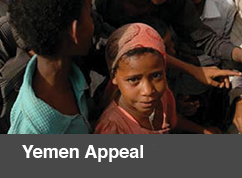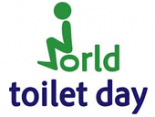Buzz Ideazz, the Children’s Islamic Library and Stanmore Jaffery’s have come together to help with this year’s Children Helping Children campaign as part of Ramadhan Relief!
‘And proclaim the hajj to people: they shall come to you on foot and on lean camels coming from distant places, that they may witness the benefits for them, and mention Allah’s Name during the known days over the livestock He has provided them. So eat thereof, and feed the destitute.” (Holy Qur’an 22:27-28)
On the occasion of Eid al-Hajj, The World Federation is now taking orders to facilitate Qurbanis (sacrifice of a goat) performed on your behalf.
Goat Qurbanis will take place in Tanzania and/or Kenya and the meat will be distributed among the needy, including widows and orphans. The meat will provide these families with dietary benefits and link them to people around the world who are thinking of them during the Eid al Hajj celebration.
COST OF QURBANI
All Qurbani requests will be carried out on goats. However, The World Federation reserves the right to make any changes in the event of unforeseen circumstances.
|
ANIMAL |
PRICE PER QURBANI |
|
Goat (Kenya/Tanzania) |
GBP £30 USD $39 CAD $51 |
|
ORDER BY: 17 AUGUST 2016 (13 Dhul Qa’dah 1437) |
|
|
ORDER ONLINE OR BY PHONE |
|
DEADLINE FOR ORDERS
Whilst Qurbanis can be arranged year round, the closing date for those wanting it done on time for Eid al Hajj is 17 August 2016 / 13 Dhul Qa’dah 1437.
TO ORDER YOUR QURBANI
To order your Qurbani, order online or contact us at:
|
|
Order Online |
Order by Phone |
|
The World Federation |
+44 (0) 20 8954 9881 |
|
|
Council of European Jamaats |
+44 (0) 20 8696 5200 |
For more information, please email [email protected]
Related News
For many years now, World Toilet Day has been marked by various organizations all over the world. However, in 2013, World Toilet Day was officially recognised by the United Nations as a day to raise awareness of sanitation issues.
The World Wildlife Fund reported that by 2025, Pakistan will be on the brink of a major water shortage, with 33 percent less water than it needs. Already, too few dams exist to contain rainwater and millions of gallons flow out to sea each year. In 2010 and 2011 alone, it was reported that nearly 18 million gallons of water streamed out to sea. Today, millions of Pakistanis have no access to clean drinking water and farmers don’t have enough irrigation water to grow good crops.











